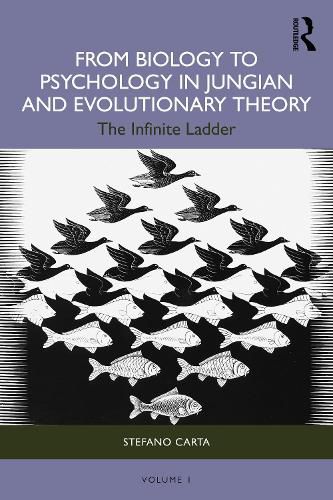Readings Newsletter
Become a Readings Member to make your shopping experience even easier.
Sign in or sign up for free!
You’re not far away from qualifying for FREE standard shipping within Australia
You’ve qualified for FREE standard shipping within Australia
The cart is loading…






This groundbreaking book repositions C.G. Jung's legacy, and the field of analytical psychology, within the panorama of contemporary knowledge in biology, psychology and anthropology, on the grounds of the role of affects and emotion as the foundation of all psychic activity.
Within this new volume, Stefano Carta aims to provide a new, up-to-date way of understanding Jung's work, and to show the effect to which his central positions can be better understood in relation to topics such as the nature of the psyche, of the Self, of the collective unconscious and of archetypal theory. From an evolutionary and biological perspective, this book describes, with extensive substantiations and an original discussion, the transformation of the biological processes into psychological ones. Additionally, the book aims to identify current tendencies which view analytical psychology in increasingly reductionistic ways and reaffirm the dynamism of Jung's paradigm.
Spanning two volumes, which are also accessible as standalone books, and with international appeal and original and interdisciplinary in scope, they will be of great interest to Jungian scholars and analysts as well as students and those on Jungian-oriented training courses.
$9.00 standard shipping within Australia
FREE standard shipping within Australia for orders over $100.00
Express & International shipping calculated at checkout
This groundbreaking book repositions C.G. Jung's legacy, and the field of analytical psychology, within the panorama of contemporary knowledge in biology, psychology and anthropology, on the grounds of the role of affects and emotion as the foundation of all psychic activity.
Within this new volume, Stefano Carta aims to provide a new, up-to-date way of understanding Jung's work, and to show the effect to which his central positions can be better understood in relation to topics such as the nature of the psyche, of the Self, of the collective unconscious and of archetypal theory. From an evolutionary and biological perspective, this book describes, with extensive substantiations and an original discussion, the transformation of the biological processes into psychological ones. Additionally, the book aims to identify current tendencies which view analytical psychology in increasingly reductionistic ways and reaffirm the dynamism of Jung's paradigm.
Spanning two volumes, which are also accessible as standalone books, and with international appeal and original and interdisciplinary in scope, they will be of great interest to Jungian scholars and analysts as well as students and those on Jungian-oriented training courses.